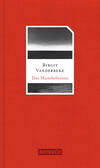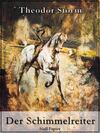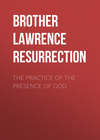Kitabı oku: «History of Tom Jones, a Foundling», sayfa 7
Chapter viii. – A receipt to regain the lost affections of a wife, which hath never been known to fail in the most desperate cases
The captain was made large amends for the unpleasant minutes which he passed in the conversation of his wife (and which were as few as he could contrive to make them), by the pleasant meditations he enjoyed when alone.
These meditations were entirely employed on Mr Allworthy’s fortune; for, first, he exercised much thought in calculating, as well as he could, the exact value of the whole: which calculations he often saw occasion to alter in his own favour: and, secondly and chiefly, he pleased himself with intended alterations in the house and gardens, and in projecting many other schemes, as well for the improvement of the estate as of the grandeur of the place: for this purpose he applied himself to the studies of architecture and gardening, and read over many books on both these subjects; for these sciences, indeed, employed his whole time, and formed his only amusement. He at last completed a most excellent plan: and very sorry we are, that it is not in our power to present it to our reader, since even the luxury of the present age, I believe, would hardly match it. It had, indeed, in a superlative degree, the two principal ingredients which serve to recommend all great and noble designs of this nature; for it required an immoderate expense to execute, and a vast length of time to bring it to any sort of perfection. The former of these, the immense wealth of which the captain supposed Mr Allworthy possessed, and which he thought himself sure of inheriting, promised very effectually to supply; and the latter, the soundness of his own constitution, and his time of life, which was only what is called middle-age, removed all apprehension of his not living to accomplish.
Nothing was wanting to enable him to enter upon the immediate execution of this plan, but the death of Mr Allworthy; in calculating which he had employed much of his own algebra, besides purchasing every book extant that treats of the value of lives, reversions, &c. From all which he satisfied himself, that as he had every day a chance of this happening, so had he more than an even chance of its happening within a few years.
But while the captain was one day busied in deep contemplations of this kind, one of the most unlucky as well as unseasonable accidents happened to him. The utmost malice of Fortune could, indeed, have contrived nothing so cruel, so mal-a-propos, so absolutely destructive to all his schemes. In short, not to keep the reader in long suspense, just at the very instant when his heart was exulting in meditations on the happiness which would accrue to him by Mr Allworthy’s death, he himself – died of an apoplexy.
This unfortunately befel the captain as he was taking his evening walk by himself, so that nobody was present to lend him any assistance, if indeed, any assistance could have preserved him. He took, therefore, measure of that proportion of soil which was now become adequate to all his future purposes, and he lay dead on the ground, a great (though not a living) example of the truth of that observation of Horace:
Tu secanda marmora
Locas sub ipsum funus; et sepulchri
Immemor, struis domos.
Which sentiment I shall thus give to the English reader: “You provide the noblest materials for building, when a pickaxe and a spade are only necessary: and build houses of five hundred by a hundred feet, forgetting that of six by two.”
Chapter ix. – A proof of the infallibility of the foregoing receipt, in the lamentations of the widow; with other suitable decorations of death, such as physicians, &c., and an epitaph in the true stile
Mr Allworthy, his sister, and another lady, were assembled at the accustomed hour in the supper-room, where, having waited a considerable time longer than usual, Mr Allworthy first declared he began to grow uneasy at the captain’s stay (for he was always most punctual at his meals); and gave orders that the bell should be rung without the doors, and especially towards those walks which the captain was wont to use.
All these summons proving ineffectual (for the captain had, by perverse accident, betaken himself to a new walk that evening), Mrs Blifil declared she was seriously frightened. Upon which the other lady, who was one of her most intimate acquaintance, and who well knew the true state of her affections, endeavoured all she could to pacify her, telling her – To be sure she could not help being uneasy; but that she should hope the best. That, perhaps the sweetness of the evening had inticed the captain to go farther than his usual walk: or he might be detained at some neighbour’s. Mrs Blifil answered, No; she was sure some accident had befallen him; for that he would never stay out without sending her word, as he must know how uneasy it would make her. The other lady, having no other arguments to use, betook herself to the entreaties usual on such occasions, and begged her not to frighten herself, for it might be of very ill consequence to her own health; and, filling out a very large glass of wine, advised, and at last prevailed with her to drink it.
Mr Allworthy now returned into the parlour; for he had been himself in search after the captain. His countenance sufficiently showed the consternation he was under, which, indeed, had a good deal deprived him of speech; but as grief operates variously on different minds, so the same apprehension which depressed his voice, elevated that of Mrs Blifil. She now began to bewail herself in very bitter terms, and floods of tears accompanied her lamentations; which the lady, her companion, declared she could not blame, but at the same time dissuaded her from indulging; attempting to moderate the grief of her friend by philosophical observations on the many disappointments to which human life is daily subject, which, she said, was a sufficient consideration to fortify our minds against any accidents, how sudden or terrible soever. She said her brother’s example ought to teach her patience, who, though indeed he could not be supposed as much concerned as herself, yet was, doubtless, very uneasy, though his resignation to the Divine will had restrained his grief within due bounds.
“Mention not my brother,” said Mrs Blifil; “I alone am the object of your pity. What are the terrors of friendship to what a wife feels on these occasions? Oh, he is lost! Somebody hath murdered him – I shall never see him more!” – Here a torrent of tears had the same consequence with what the suppression had occasioned to Mr Allworthy, and she remained silent.
At this interval a servant came running in, out of breath, and cried out, The captain was found; and, before he could proceed farther, he was followed by two more, bearing the dead body between them.
Here the curious reader may observe another diversity in the operations of grief: for as Mr Allworthy had been before silent, from the same cause which had made his sister vociferous; so did the present sight, which drew tears from the gentleman, put an entire stop to those of the lady; who first gave a violent scream, and presently after fell into a fit.
The room was soon full of servants, some of whom, with the lady visitant, were employed in care of the wife; and others, with Mr Allworthy, assisted in carrying off the captain to a warm bed; where every method was tried, in order to restore him to life.
And glad should we be, could we inform the reader that both these bodies had been attended with equal success; for those who undertook the care of the lady succeeded so well, that, after the fit had continued a decent time, she again revived, to their great satisfaction: but as to the captain, all experiments of bleeding, chafing, dropping, &c., proved ineffectual. Death, that inexorable judge, had passed sentence on him, and refused to grant him a reprieve, though two doctors who arrived, and were fee’d at one and the same instant, were his counsel.
These two doctors, whom, to avoid any malicious applications, we shall distinguish by the names of Dr Y. and Dr Z., having felt his pulse; to wit, Dr Y. his right arm, and Dr Z. his left; both agreed that he was absolutely dead; but as to the distemper, or cause of his death, they differed; Dr Y. holding that he died of an apoplexy, and Dr Z. of an epilepsy.
Hence arose a dispute between the learned men, in which each delivered the reasons of their several opinions. These were of such equal force, that they served both to confirm either doctor in his own sentiments, and made not the least impression on his adversary.
To say the truth, every physician almost hath his favourite disease, to which he ascribes all the victories obtained over human nature. The gout, the rheumatism, the stone, the gravel, and the consumption, have all their several patrons in the faculty; and none more than the nervous fever, or the fever on the spirits. And here we may account for those disagreements in opinion, concerning the cause of a patient’s death, which sometimes occur, between the most learned of the college; and which have greatly surprized that part of the world who have been ignorant of the fact we have above asserted.
The reader may perhaps be surprized, that, instead of endeavouring to revive the patient, the learned gentlemen should fall immediately into a dispute on the occasion of his death; but in reality all such experiments had been made before their arrival: for the captain was put into a warm bed, had his veins scarified, his forehead chafed, and all sorts of strong drops applied to his lips and nostrils.
The physicians, therefore, finding themselves anticipated in everything they ordered, were at a loss how to apply that portion of time which it is usual and decent to remain for their fee, and were therefore necessitated to find some subject or other for discourse; and what could more naturally present itself than that before mentioned?
Our doctors were about to take their leave, when Mr Allworthy, having given over the captain, and acquiesced in the Divine will, began to enquire after his sister, whom he desired them to visit before their departure.
This lady was now recovered of her fit, and, to use the common phrase, as well as could be expected for one in her condition. The doctors, therefore, all previous ceremonies being complied with, as this was a new patient, attended, according to desire, and laid hold on each of her hands, as they had before done on those of the corpse.
The case of the lady was in the other extreme from that of her husband: for as he was past all the assistance of physic, so in reality she required none.
There is nothing more unjust than the vulgar opinion, by which physicians are misrepresented, as friends to death. On the contrary, I believe, if the number of those who recover by physic could be opposed to that of the martyrs to it, the former would rather exceed the latter. Nay, some are so cautious on this head, that, to avoid a possibility of killing the patient, they abstain from all methods of curing, and prescribe nothing but what can neither do good nor harm. I have heard some of these, with great gravity, deliver it as a maxim, “That Nature should be left to do her own work, while the physician stands by as it were to clap her on the back, and encourage her when she doth well.”
So little then did our doctors delight in death, that they discharged the corpse after a single fee; but they were not so disgusted with their living patient; concerning whose case they immediately agreed, and fell to prescribing with great diligence.
Whether, as the lady had at first persuaded her physicians to believe her ill, they had now, in return, persuaded her to believe herself so, I will not determine; but she continued a whole month with all the decorations of sickness. During this time she was visited by physicians, attended by nurses, and received constant messages from her acquaintance to enquire after her health.
At length the decent time for sickness and immoderate grief being expired, the doctors were discharged, and the lady began to see company; being altered only from what she was before, by that colour of sadness in which she had dressed her person and countenance.
The captain was now interred, and might, perhaps, have already made a large progress towards oblivion, had not the friendship of Mr Allworthy taken care to preserve his memory, by the following epitaph, which was written by a man of as great genius as integrity, and one who perfectly well knew the captain.
HERE LIES,
IN EXPECTATION OF A JOYFUL RISING,
THE BODY OF
CAPTAIN JOHN BLIFIL.
LONDON
HAD THE HONOUR OF HIS BIRTH,
OXFORD
OF HIS EDUCATION.
HIS PARTS
WERE AN HONOUR TO HIS PROFESSION
AND TO HIS COUNTRY:
HIS LIFE, TO HIS RELIGION
AND HUMAN NATURE.
HE WAS A DUTIFUL SON,
A TENDER HUSBAND,
AN AFFECTIONATE FATHER,
A MOST KIND BROTHER,
A SINCERE FRIEND,
A DEVOUT CHRISTIAN,
AND A GOOD MAN.
HIS INCONSOLABLE WIDOW
HATH ERECTED THIS STONE,
THE MONUMENT OF
HIS VIRTUES
AND OF HER AFFECTION.
BOOK III. – CONTAINING THE MOST MEMORABLE TRANSACTIONS WHICH PASSED IN THE FAMILY OF MR ALLWORTHY, FROM THE TIME WHEN TOMMY JONES ARRIVED AT THE AGE OF FOURTEEN, TILL HE ATTAINED THE AGE OF NINETEEN. IN THIS BOOK
THE READER MAY PICK UP SOME HINTS CONCERNING THE EDUCATION OF CHILDREN
Chapter i. – Containing little or nothing
The reader will be pleased to remember, that, at the beginning of the second book of this history, we gave him a hint of our intention to pass over several large periods of time, in which nothing happened worthy of being recorded in a chronicle of this kind.
In so doing, we do not only consult our own dignity and ease, but the good and advantage of the reader: for besides that by these means we prevent him from throwing away his time, in reading without either pleasure or emolument, we give him, at all such seasons, an opportunity of employing that wonderful sagacity, of which he is master, by filling up these vacant spaces of time with his own conjectures; for which purpose we have taken care to qualify him in the preceding pages.
For instance, what reader but knows that Mr Allworthy felt, at first, for the loss of his friend, those emotions of grief, which on such occasions enter into all men whose hearts are not composed of flint, or their heads of as solid materials? Again, what reader doth not know that philosophy and religion in time moderated, and at last extinguished, this grief? The former of these teaching the folly and vanity of it, and the latter correcting it as unlawful, and at the same time assuaging it, by raising future hopes and assurances, which enable a strong and religious mind to take leave of a friend, on his deathbed, with little less indifference than if he was preparing for a long journey; and, indeed, with little less hope of seeing him again.
Nor can the judicious reader be at a greater loss on account of Mrs Bridget Blifil, who, he may be assured, conducted herself through the whole season in which grief is to make its appearance on the outside of the body, with the strictest regard to all the rules of custom and decency, suiting the alterations of her countenance to the several alterations of her habit: for as this changed from weeds to black, from black to grey, from grey to white, so did her countenance change from dismal to sorrowful, from sorrowful to sad, and from sad to serious, till the day came in which she was allowed to return to her former serenity.
We have mentioned these two, as examples only of the task which may be imposed on readers of the lowest class. Much higher and harder exercises of judgment and penetration may reasonably be expected from the upper graduates in criticism. Many notable discoveries will, I doubt not, be made by such, of the transactions which happened in the family of our worthy man, during all the years which we have thought proper to pass over: for though nothing worthy of a place in this history occurred within that period, yet did several incidents happen of equal importance with those reported by the daily and weekly historians of the age; in reading which great numbers of persons consume a considerable part of their time, very little, I am afraid, to their emolument. Now, in the conjectures here proposed, some of the most excellent faculties of the mind may be employed to much advantage, since it is a more useful capacity to be able to foretel the actions of men, in any circumstance, from their characters, than to judge of their characters from their actions. The former, I own, requires the greater penetration; but may be accomplished by true sagacity with no less certainty than the latter.
As we are sensible that much the greatest part of our readers are very eminently possessed of this quality, we have left them a space of twelve years to exert it in; and shall now bring forth our heroe, at about fourteen years of age, not questioning that many have been long impatient to be introduced to his acquaintance.
Chapter ii. – The heroe of this great history appears with very bad omens. A little tale of so LOW a kind that some may think it not worth their notice. A word or two concerning a squire, and more relating to a gamekeeper and a schoolmaster
As we determined, when we first sat down to write this history, to flatter no man, but to guide our pen throughout by the directions of truth, we are obliged to bring our heroe on the stage in a much more disadvantageous manner than we could wish; and to declare honestly, even at his first appearance, that it was the universal opinion of all Mr Allworthy’s family that he was certainly born to be hanged.
Indeed, I am sorry to say there was too much reason for this conjecture; the lad having from his earliest years discovered a propensity to many vices, and especially to one which hath as direct a tendency as any other to that fate which we have just now observed to have been prophetically denounced against him: he had been already convicted of three robberies, viz., of robbing an orchard, of stealing a duck out of a farmer’s yard, and of picking Master Blifil’s pocket of a ball.
The vices of this young man were, moreover, heightened by the disadvantageous light in which they appeared when opposed to the virtues of Master Blifil, his companion; a youth of so different a cast from little Jones, that not only the family but all the neighbourhood resounded his praises. He was, indeed, a lad of a remarkable disposition; sober, discreet, and pious beyond his age; qualities which gained him the love of every one who knew him: while Tom Jones was universally disliked; and many expressed their wonder that Mr Allworthy would suffer such a lad to be educated with his nephew, lest the morals of the latter should be corrupted by his example.
An incident which happened about this time will set the characters of these two lads more fairly before the discerning reader than is in the power of the longest dissertation.
Tom Jones, who, bad as he is, must serve for the heroe of this history, had only one friend among all the servants of the family; for as to Mrs Wilkins, she had long since given him up, and was perfectly reconciled to her mistress. This friend was the gamekeeper, a fellow of a loose kind of disposition, and who was thought not to entertain much stricter notions concerning the difference of meum and tuum than the young gentleman himself. And hence this friendship gave occasion to many sarcastical remarks among the domestics, most of which were either proverbs before, or at least are become so now; and, indeed, the wit of them all may be comprised in that short Latin proverb, “Noscitur a socio;” which, I think, is thus expressed in English, “You may know him by the company he keeps.”
To say the truth, some of that atrocious wickedness in Jones, of which we have just mentioned three examples, might perhaps be derived from the encouragement he had received from this fellow, who, in two or three instances, had been what the law calls an accessary after the fact: for the whole duck, and great part of the apples, were converted to the use of the gamekeeper and his family; though, as Jones alone was discovered, the poor lad bore not only the whole smart, but the whole blame; both which fell again to his lot on the following occasion.
Contiguous to Mr Allworthy’s estate was the manor of one of those gentlemen who are called preservers of the game. This species of men, from the great severity with which they revenge the death of a hare or partridge, might be thought to cultivate the same superstition with the Bannians in India; many of whom, we are told, dedicate their whole lives to the preservation and protection of certain animals; was it not that our English Bannians, while they preserve them from other enemies, will most unmercifully slaughter whole horse-loads themselves; so that they stand clearly acquitted of any such heathenish superstition.
I have, indeed, a much better opinion of this kind of men than is entertained by some, as I take them to answer the order of Nature, and the good purposes for which they were ordained, in a more ample manner than many others. Now, as Horace tells us that there are a set of human beings
Fruges consumere nati,
“Born to consume the fruits of the earth;” so I make no manner of doubt but that there are others
Feras consumere nati,
“Born to consume the beasts of the field;” or, as it is commonly called, the game; and none, I believe, will deny but that those squires fulfil this end of their creation.
Little Jones went one day a shooting with the gamekeeper; when happening to spring a covey of partridges near the border of that manor over which Fortune, to fulfil the wise purposes of Nature, had planted one of the game consumers, the birds flew into it, and were marked (as it is called) by the two sportsmen, in some furze bushes, about two or three hundred paces beyond Mr Allworthy’s dominions.
Mr Allworthy had given the fellow strict orders, on pain of forfeiting his place, never to trespass on any of his neighbours; no more on those who were less rigid in this matter than on the lord of this manor. With regard to others, indeed, these orders had not been always very scrupulously kept; but as the disposition of the gentleman with whom the partridges had taken sanctuary was well known, the gamekeeper had never yet attempted to invade his territories. Nor had he done it now, had not the younger sportsman, who was excessively eager to pursue the flying game, over-persuaded him; but Jones being very importunate, the other, who was himself keen enough after the sport, yielded to his persuasions, entered the manor, and shot one of the partridges.
The gentleman himself was at that time on horse-back, at a little distance from them; and hearing the gun go off, he immediately made towards the place, and discovered poor Tom; for the gamekeeper had leapt into the thickest part of the furze-brake, where he had happily concealed himself.
The gentleman having searched the lad, and found the partridge upon him, denounced great vengeance, swearing he would acquaint Mr Allworthy. He was as good as his word: for he rode immediately to his house, and complained of the trespass on his manor in as high terms and as bitter language as if his house had been broken open, and the most valuable furniture stole out of it. He added, that some other person was in his company, though he could not discover him; for that two guns had been discharged almost in the same instant. And, says he, “We have found only this partridge, but the Lord knows what mischief they have done.”
At his return home, Tom was presently convened before Mr Allworthy. He owned the fact, and alledged no other excuse but what was really true, viz., that the covey was originally sprung in Mr Allworthy’s own manor.
Tom was then interrogated who was with him, which Mr Allworthy declared he was resolved to know, acquainting the culprit with the circumstance of the two guns, which had been deposed by the squire and both his servants; but Tom stoutly persisted in asserting that he was alone; yet, to say the truth, he hesitated a little at first, which would have confirmed Mr Allworthy’s belief, had what the squire and his servants said wanted any further confirmation.
The gamekeeper, being a suspected person, was now sent for, and the question put to him; but he, relying on the promise which Tom had made him, to take all upon himself, very resolutely denied being in company with the young gentleman, or indeed having seen him the whole afternoon.
Mr Allworthy then turned towards Tom, with more than usual anger in his countenance, and advised him to confess who was with him; repeating, that he was resolved to know. The lad, however, still maintained his resolution, and was dismissed with much wrath by Mr Allworthy, who told him he should have to the next morning to consider of it, when he should be questioned by another person, and in another manner.
Poor Jones spent a very melancholy night; and the more so, as he was without his usual companion; for Master Blifil was gone abroad on a visit with his mother. Fear of the punishment he was to suffer was on this occasion his least evil; his chief anxiety being, lest his constancy should fail him, and he should be brought to betray the gamekeeper, whose ruin he knew must now be the consequence.
Nor did the gamekeeper pass his time much better. He had the same apprehensions with the youth; for whose honour he had likewise a much tenderer regard than for his skin.
In the morning, when Tom attended the reverend Mr Thwackum, the person to whom Mr Allworthy had committed the instruction of the two boys, he had the same questions put to him by that gentleman which he had been asked the evening before, to which he returned the same answers. The consequence of this was, so severe a whipping, that it possibly fell little short of the torture with which confessions are in some countries extorted from criminals.
Tom bore his punishment with great resolution; and though his master asked him, between every stroke, whether he would not confess, he was contented to be flead rather than betray his friend, or break the promise he had made.
The gamekeeper was now relieved from his anxiety, and Mr Allworthy himself began to be concerned at Tom’s sufferings: for besides that Mr Thwackum, being highly enraged that he was not able to make the boy say what he himself pleased, had carried his severity much beyond the good man’s intention, this latter began now to suspect that the squire had been mistaken; which his extreme eagerness and anger seemed to make probable; and as for what the servants had said in confirmation of their master’s account, he laid no great stress upon that. Now, as cruelty and injustice were two ideas of which Mr Allworthy could by no means support the consciousness a single moment, he sent for Tom, and after many kind and friendly exhortations, said, “I am convinced, my dear child, that my suspicions have wronged you; I am sorry that you have been so severely punished on this account.” And at last gave him a little horse to make him amends; again repeating his sorrow for what had past.
Tom’s guilt now flew in his face more than any severity could make it. He could more easily bear the lashes of Thwackum, than the generosity of Allworthy. The tears burst from his eyes, and he fell upon his knees, crying, “Oh, sir, you are too good to me. Indeed you are. Indeed I don’t deserve it.” And at that very instant, from the fulness of his heart, had almost betrayed the secret; but the good genius of the gamekeeper suggested to him what might be the consequence to the poor fellow, and this consideration sealed his lips.
Thwackum did all he could to persuade Allworthy from showing any compassion or kindness to the boy, saying, “He had persisted in an untruth;” and gave some hints, that a second whipping might probably bring the matter to light.
But Mr Allworthy absolutely refused to consent to the experiment. He said, the boy had suffered enough already for concealing the truth, even if he was guilty, seeing that he could have no motive but a mistaken point of honour for so doing.
“Honour!” cryed Thwackum, with some warmth, “mere stubbornness and obstinacy! Can honour teach any one to tell a lie, or can any honour exist independent of religion?”
This discourse happened at table when dinner was just ended; and there were present Mr Allworthy, Mr Thwackum, and a third gentleman, who now entered into the debate, and whom, before we proceed any further, we shall briefly introduce to our reader’s acquaintance.



















